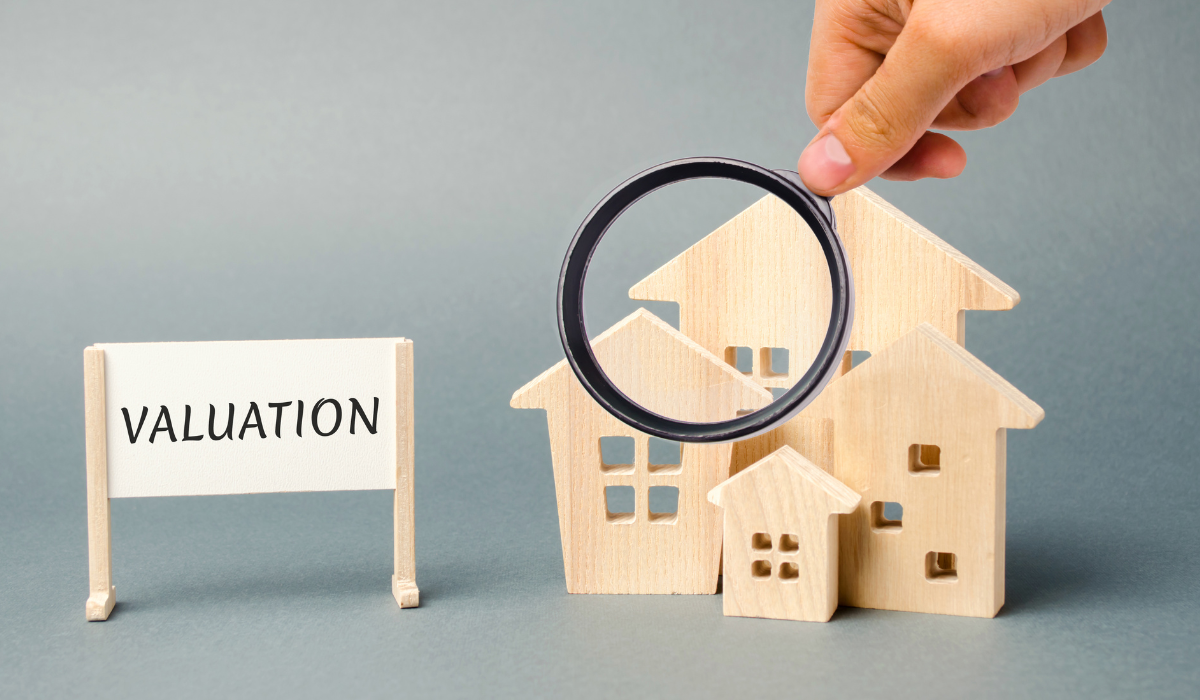What is Commercial Real Estate Valuation and Why Does It Matter?
Understanding Commercial Real Estate Valuation: Why It Matters for Investors and Businesses

Commercial real estate valuation is a critical process used to determine the value of a commercial property.
It involves assessing a property’s market value based on factors such as location, size, income potential, and market conditions.
This valuation serves as a cornerstone for informed decision-making, whether you are buying, selling, financing, or investing in commercial real estate.
This article delves into the essentials of commercial real estate valuation, exploring its importance, methodologies, challenges.
By understanding this process, property owners, investors, and stakeholders can make more strategic decisions in the ever-evolving real estate market.
What is Commercial Real Estate Valuation?
Commercial real estate valuation is the process of determining the fair market value of a commercial property.
This valuation considers various factors such as location, size, condition, potential income, market demand, and economic conditions.
It provides an accurate estimate of a property's worth, which is essential for decision-making in buying, selling, investing, financing, or leasing commercial real estate.
Key Elements of Commercial Real Estate Valuation
Accurate commercial real estate valuation relies on several key elements that collectively determine a property’s value:
Market Value
This represents the price a buyer is willing to pay and a seller is willing to accept under typical market conditions, reflecting current demand and supply.
Income Potential
For income-generating properties, the valuation focuses on expected rental income, operating expenses, and projected cash flow, which are critical for investors seeking returns.
Comparable Sales
The sale prices of similar properties in the same geographic area influence the valuation, providing a benchmark based on market activity.
Replacement Cost
This approach estimates the cost to replace or reconstruct the property if it were destroyed, accounting for materials, labor, and depreciation.
Location and Market Trends
Proximity to amenities, transportation, and economic growth, alongside local market conditions, significantly impacts property value.
These factors ensure a comprehensive valuation aligned with market realities.
Why is Commercial Real Estate Valuation Important?
Commercial real estate valuation is a cornerstone of effective decision-making in the real estate industry. Here’s why it matters:
Investment Decisions
Accurate valuation provides a clear understanding of a property’s worth, enabling investors to assess its potential returns and risks. This insight helps allocate resources effectively, ensuring that investments align with financial goals.
Loan Financing
Lenders use commercial real estate valuations to determine the loan-to-value (LTV) ratio, ensuring loans are adequately backed by collateral. This minimizes risk for both lenders and borrowers while securing fair loan terms.
Tax Assessment
Proper valuations ensure fair property tax assessments. Overvalued properties may result in excessive taxes, while undervaluation could lead to penalties or disputes with tax authorities.
Portfolio Management
For investors with multiple properties, periodic valuations help monitor asset performance and make strategic adjustments to optimize portfolio value and returns.
Strategic Planning
Developers and businesses rely on valuations to guide project planning, expansions, or relocations. Understanding the property’s market value ensures financial strategies are aligned with long-term goals.
If you’re seeking professional assistance with estate valuations, The Perfect Piece Estate Sales offers personalized solutions tailored to meet your specific needs, ensuring accurate assessments that support sound decision-making.
Key Methods of Commercial Real Estate Valuation
Several approaches are used to evaluate commercial real estate. The method chosen often depends on the type of property, purpose of valuation, and available data.
1. Cost Approach
This method estimates a property’s value based on the cost to construct a similar building, accounting for depreciation. It is commonly used for new or specialized properties.
- Advantages: Useful for properties without recent sales comparables.
- Limitations: May not account for market demand or location-specific factors.
2. Income Approach
The income approach calculates the property’s value based on its income-generating potential. This is particularly effective for rental properties, offices, and retail spaces.
- Direct Capitalization Method: Divides the net operating income (NOI) by a capitalization rate.
- Discounted Cash Flow (DCF): Projects future income and discounts it to present value.
3. Sales Comparison Approach
This method evaluates a property by comparing it to similar properties recently sold in the area.
- Advantages: Reflects current market conditions.
- Limitations: Limited by the availability of comparable sales data.
4. Gross Rent Multiplier (GRM)
This simplified valuation method divides the property’s sale price by its gross rental income. It’s often used for smaller properties with consistent rental income.
For personalized valuation support, you can rely on The Perfect Piece Estate Sales to provide expert assistance and detailed market analysis.
Challenges in Commercial Real Estate Valuation
While commercial real estate valuation is a vital process, it comes with several challenges that can complicate accurate assessments.
Market Fluctuations
Real estate markets are inherently dynamic, influenced by economic cycles, interest rates, inflation, and local developments. These fluctuations can make it challenging to establish consistent property values over time.
Data Availability
Access to reliable and comprehensive data, such as comparable property sales, rental income, and operational expenses, is often limited. This lack of data can hinder precise valuations, especially in less active markets.
Subjectivity
Some valuation factors, like future growth potential, demand shifts, or property appeal, involve subjective judgment. This introduces variability and potential inaccuracies depending on the appraiser’s perspective.
Regulatory Compliance
Navigating the complexities of regional laws, tax regulations, and zoning standards requires meticulous attention. Any misstep in compliance can lead to flawed valuations and legal repercussions.
Impact of External Factors
Environmental concerns, infrastructure changes, and unforeseen events like natural disasters can significantly alter a property’s value, often beyond the scope of standard valuation models.
Addressing these challenges requires a blend of expertise, robust data collection, and adaptive methodologies to ensure accurate and reliable valuations.
How to Choose a Valuation Method
Choosing the right valuation method is critical to ensuring an accurate assessment of a commercial property’s worth. The selection process depends on several key factors:
Property Type
Different property types require tailored approaches. Retail spaces, office buildings, industrial properties, and mixed-use developments often demand unique valuation methods based on their characteristics and use cases.
Purpose of Valuation
The reason behind the valuation—whether it’s for selling, refinancing, securing a loan, or appealing a tax assessment—can influence the method. For example, income-generating properties may benefit from the income approach, while new developments might use the cost approach.
Data Quality
The availability and reliability of data play a crucial role. When comprehensive market data, including recent sales and rental trends, is accessible, methods like the sales comparison or income approach are effective.
By considering these factors, you can select the most appropriate valuation method, ensuring accurate results tailored to your objectives.
Tips for Accurate Commercial Real Estate Valuation
Conduct Thorough Research
Gather detailed market data, including recent comparable sales, rental rates, and economic trends. A well-informed analysis helps ensure accurate valuations.
Hire Professionals
Enlisting the expertise of experienced appraisers or real estate consultants is crucial. They provide objective, accurate, and detailed assessments tailored to your property type and valuation needs.
Leverage Expert Services
Partner with trusted service providers like
The Perfect Piece Estate Sales to access professional support. Their personalized solutions ensure valuations are accurate and aligned with your goals.
Regular Updates
Real estate markets are dynamic, with values fluctuating due to economic and local factors. Conducting periodic revaluations keeps your property’s market value current.
Consider All Factors
Assess all elements that impact value, such as location, market demand, property condition, and potential risks. A comprehensive evaluation ensures nothing critical is overlooked.
By applying these tips, you can achieve accurate and reliable commercial real estate valuations that guide better decision-making.
Conclusion
Commercial real estate valuation is a critical process that underpins decision-making across the real estate ecosystem.
Whether for investment, financing, tax purposes, or strategic planning, understanding a property’s value empowers stakeholders to make informed and effective choices.
By employing appropriate valuation methods and staying up to date with market trends, you can confidently navigate the complexities of the commercial real estate landscape.
Service providers like The Perfect Piece Estate Sales offer professional guidance and expertise, helping you achieve accurate and reliable valuations tailored to your needs.
In today’s competitive market, accurate valuations go beyond numbers—they unlock opportunities, mitigate risks, and maximize returns, enabling long-term success in the ever-evolving world of commercial real estate.
FAQs
What is commercial real estate valuation?
Commercial real estate valuation is the process of determining the fair market value of a commercial property based on factors like location, income potential, market trends, and property condition.
Why is commercial real estate valuation important?
Valuation is essential for making informed decisions in buying, selling, financing, or investing in real estate. It ensures fair pricing, proper tax assessments, and optimized investment strategies.
What are the main methods of commercial real estate valuation?
The primary methods include the cost approach, income approach, sales comparison approach, and gross rent multiplier (GRM), each tailored to specific property types and purposes.
What factors influence commercial real estate value the most?
Key factors include market conditions, property location, income-generating potential, recent comparable sales, and external factors like zoning regulations and infrastructure.
How often should commercial properties be revalued?
Commercial properties should be revalued periodically, especially during significant market changes or when planning to sell, refinance, or reassess taxes.
How can I ensure an accurate property valuation?
Conduct thorough research, hire experienced appraisers, use professional services like The Perfect Piece Estate Sales, and consider all relevant factors, including market trends and property-specific data.
Contact Us
We will get back to you as soon as possible.
Please try again later.
Make sure to join our email list so you can stay up-to-date on upcoming sales and exclusive offers!
Sign up for updates!
1140 Old Peachtree Rd NW
Suite D
Duluth, GA 30097
Monday – Friday
from 10am to 4pm
Quick LInks
All Rights Reserved | The Perfect Piece Estate Liquidators, Inc.











